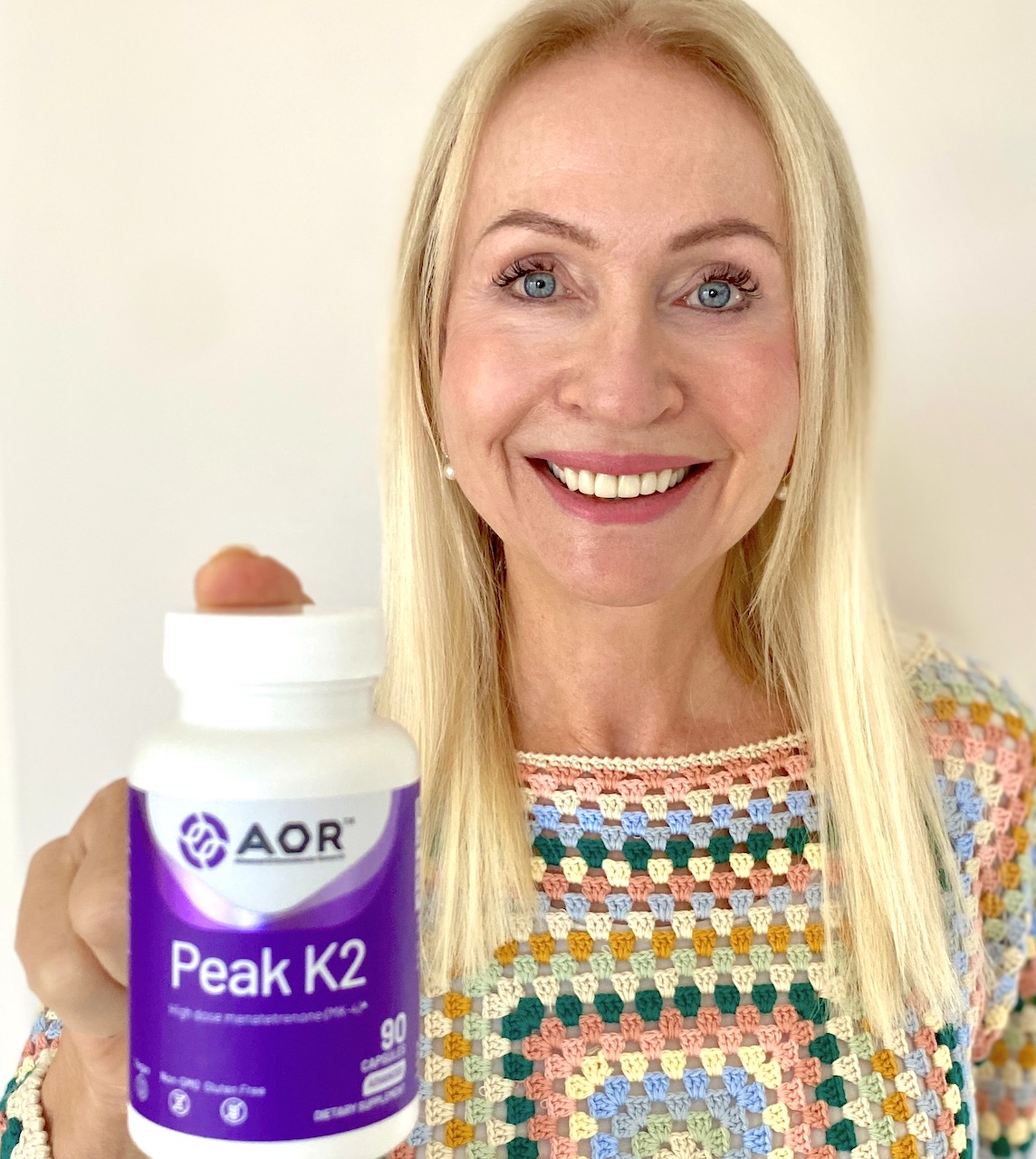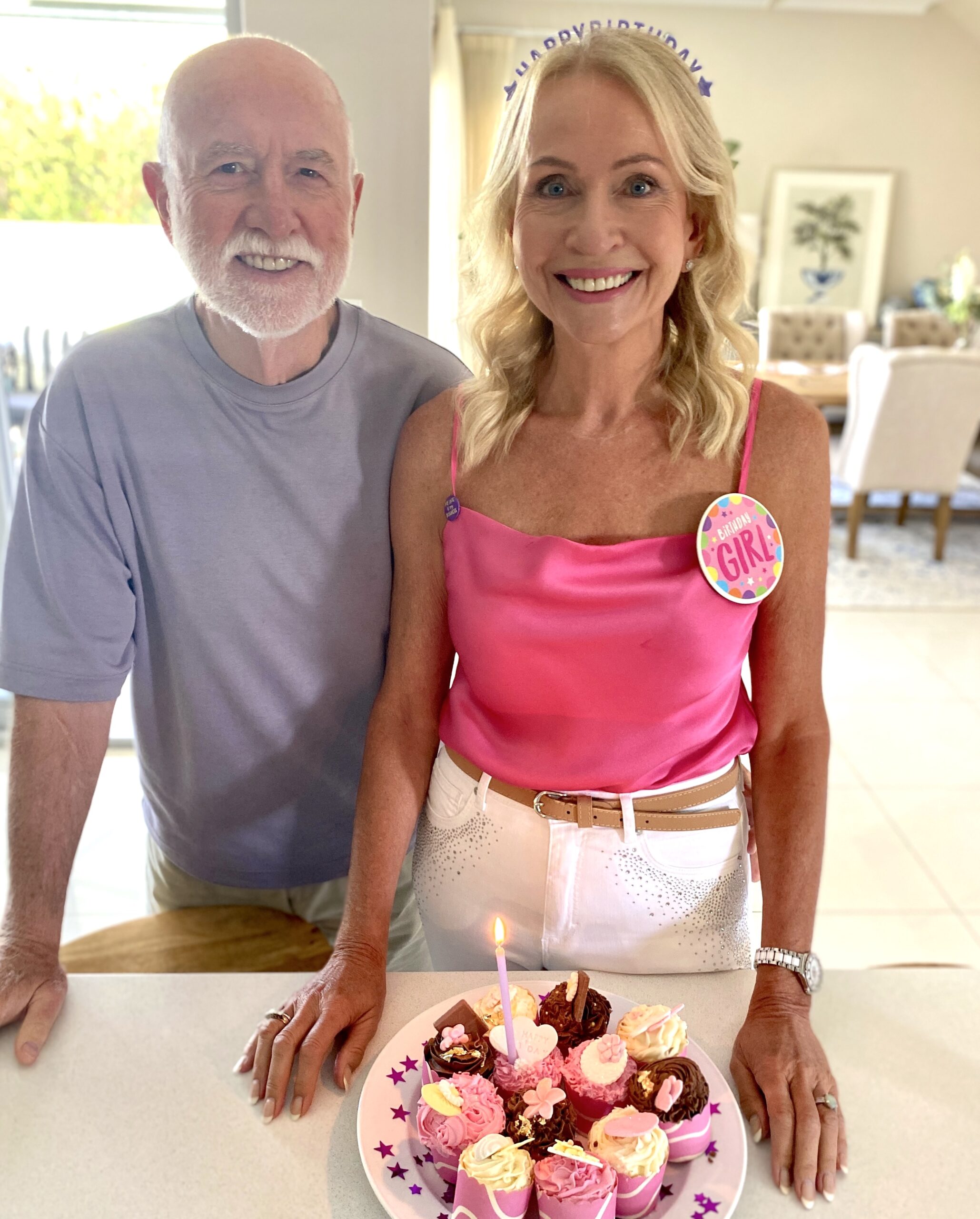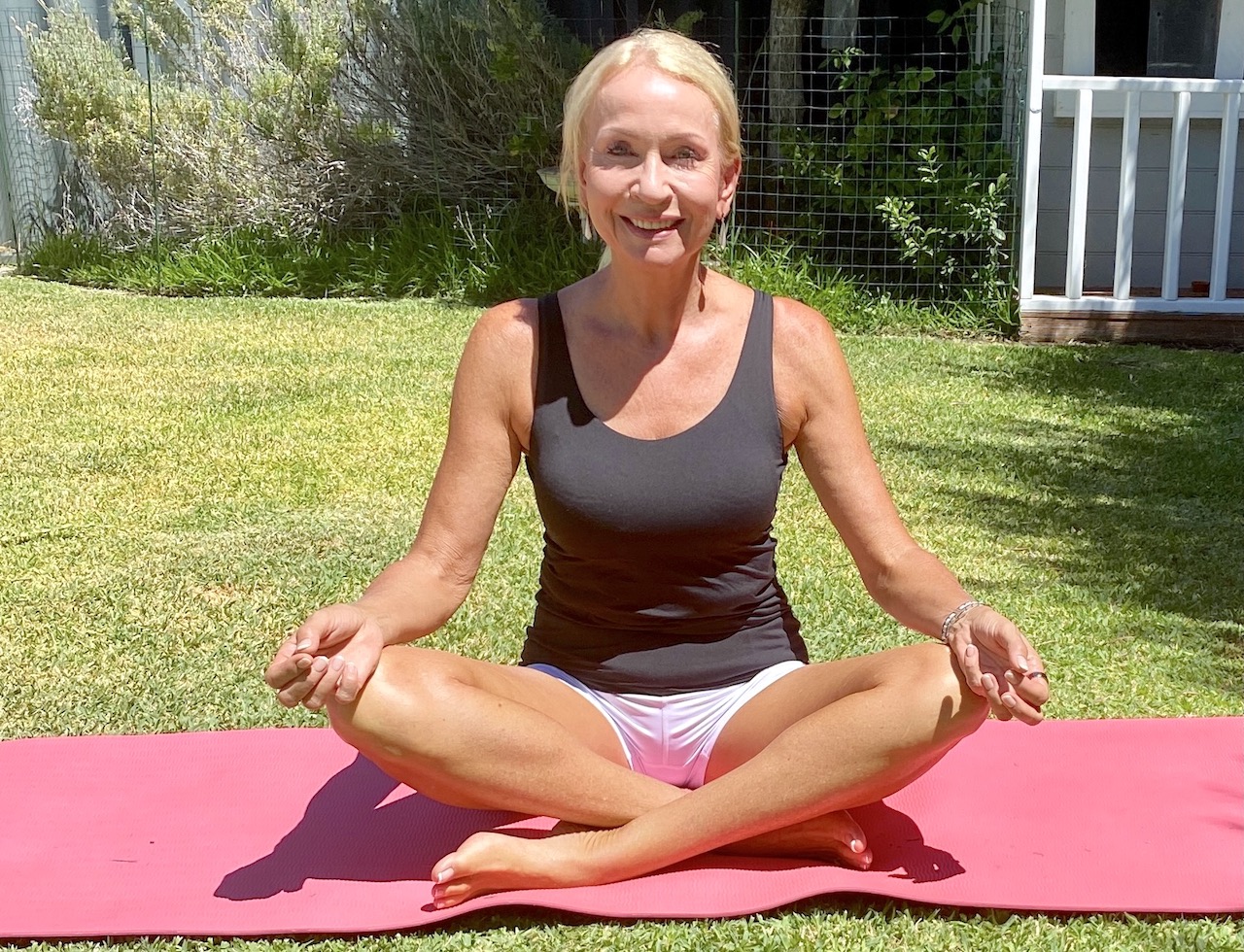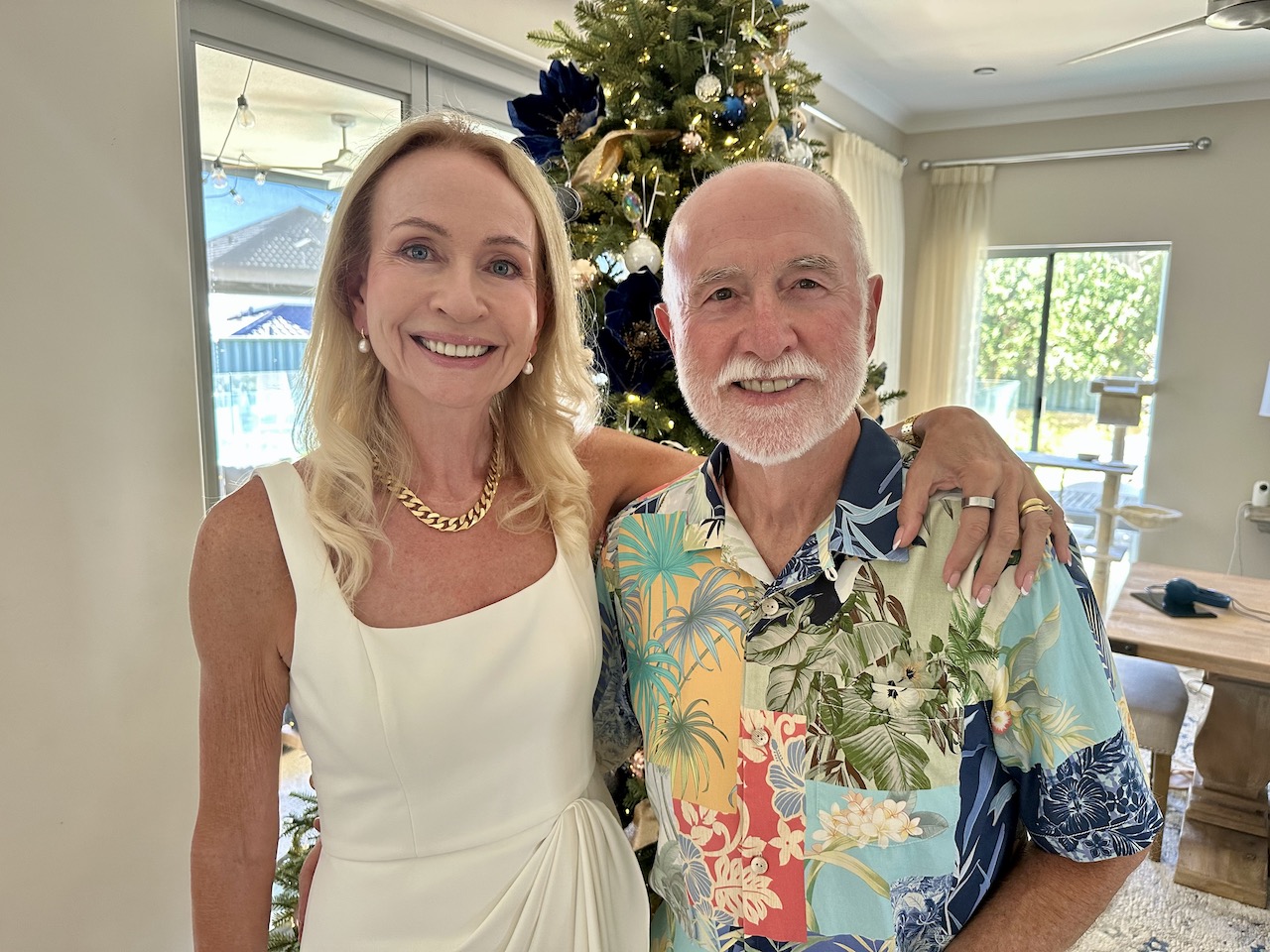When it comes to top dental health hacks, a great smile is the least of it, says VERNE MAREE. Poor dental and oral health might be undermining your vitality and shortening your life in ways you may never have imagined. Read on for more – and all you never wanted to know about Vitamin K2!
Good health is about nutrition, exercise, good sleep and proper oral hygiene. Dr Judson Wall
Before introducing Dr Judson Wall properly, I’ll cut to the chase with his four simple steps to oral hygiene.
Four Simple Steps
Step #1 Floss – any mechanical way; I use Oral B Easy Glide, which has almost eliminated the small cuts and bleeding I used to experience.
Step #2 Brushing technique – keep half the bristles on the teeth, he says: half on the gums, moving around in small circles. The idea is to mechanically remove biofilm from teeth.
Step #3 Water flossing – Waterpiks are really popular nowadays. As previously mentioned in my post #6 Biological Dentistry, I can personally recommend only the counter-top model. Dr Wall recommends adding either baking soda (bicarb) or hydrogen peroxide on alternate days, to raise the pH in the mouth. According to Dr Hall, when the pH of your mouth is 6.8 or higher, both dental decay and gum disease are impossible.
Step #4 Swish – with a tablespoon or two of the same mixture you used in your Waterpik. This leaves your mouth alkaline for the night, and for the first few hours of the morning before breakfast.
Everything we do should be geared to maintaining that alkalinity, says Dr Wall. If you go one night without brushing and flossing, you have an entire Amazon forest full of bacteria in your mouth the next day.

If you go one night without brushing and flossing, you have an entire Amazon forest full of bacteria in your mouth the next day.
Dr Judson Wall
Back Story
The steps above are all from Dr Wall being interviewed by energy guru and mitochondrial master Ari Whitten. Famous for his Ultimate Guide to Red Light Therapy, Ari has just published Eating for Energy, reviewed here, which is also pretty good.
As it happened, just in time for my dental hygienist visit to Ozone Dentistry* in Karrinyup WA the other day, Ari broadcast the interview in question in Episode #306 of his Energy Blueprint podcast: Top Hacks for Healthy Teeth and Gums – and how poor oral health leads to fatigue and disease.
(*Click here to see my blog post #6 Biological Dentistry, which is mainly about Ozone Dentistry.)

Ari interviewed holistic dentist and dentist educator, Dr Judson Wall, who explained why oral health is the gateway to bodily health.
It bears repeating: your mouth is the first stop of you digestive tract. If the mouth isn’t healthy, it’s impossible for the rest of the gut to be healthy. Toxic materials in the mouth transfer to the gut, to the immune system, causing chronic inflammation systemically. That means heart disease, for example. (See here for an article on the link between dental plaque and coronary plaque.)

Disappointed!
With my own high coronary calcium (recently up to a high 1,350 on the Agatson score) showing advanced atherosclerosis, or hardening of the arteries, I absolutely have to avoid plaque build-up and gum disease.
So we were disappointed when hygienist Robbie at Ozone Dentistry found extensive plaque build-up, just nine months after my last session with her. I’d been brushing, I’d been flossing, I’d been Waterpik-ing, I’d been oil-pulling – I expected a better outcome. Hell, I deserved a better outcome!

It didn’t help that I’d had to wait three months longer than the ideal six months between bookings: blame the ubiquitous pandemic-related postponements.
Nevertheless, I needed to know: What more could I do to keep the plaque at bay and maintain these more-or-less pearly whites in good shape – and the rest of me along with them?
Not having much opportunity to ask Robbie anything, especially once she had effectively shut me up with a dental dam, it behooved me to do some research… and Ari’s interview with Dr Wall couldn’t have been more timeous. Here’s what else I found out.

Hidden Causes
What contributes to periodontal disease?
Not brushing and flossing properly are obvious culprits. Since getting the countertop Waterpik water-flosser that was on my Christmas wish list – see here for my blog post #9 Christmas Wish List for a Biohacker – I’ve been using it religiously. I also replace the head of my electric toothbrush every three months, and I floss daily with the Oral B Easy Glide that my dentist recommended. So it can’t be that.
What about diet, though? Had I been going wrong somewhere? Was there possibly a vital supplement that I wasn’t taking. (Surely not!)
Dr Judson Wall says the role of nutrition in dental health is under-appreciated – particularly a lack of nutrients, especially Vitamins D3 and K2. With today’s mass-produced and over-refined food, he adds, we are missing loads of nutrients that are being chelated in our soil and not making it on to our plates.

The Amazing Dr Weston A. Price – and his Activator X!
The foods of the indigenous people that famous Canadian dentist Weston A. Price (1870-1948) studied all over the world* were four to ten times higher in vitamins than our processed food today. Extensive testing and photographs showed that those indigenous people had all their teeth and no cavities, plus dense bones. Most interestingly, he identified a common substance among them that he called Activator X, which turned out to be Vitamin K2.


Note: In the 1930s, Price and his wife travelled more than 100,000 miles to observe the diets and health of isolated primitive peoples in Africa, South America, Australia, Polynesia, Europe and northern Canada. (Predictably, if you search online you will find plenty of recent mainstream medical industry propaganda systematically discrediting his remarkable work as quackery. Unfortunately, that’s par for the course nowadays.)
Today, every other American over the age of 50 is either osteopaenic or osteoporotic (lacking in bone density). Judging from what I see Western Australians eating – highly processed and fast food, always with the ubiquitous “chippies” fried in toxic seed oils like canola and sunflower – I’d be extremely surprised if Australians were any better off.
Soapbox moment: Whether I’m at my gym café or at a food outlet at our local mall, I see mothers asking children as young as three to point out whatever shite they fancy behind the glass – from lurid green jelly in plastic cups and red, sugary snakes to pastries, gigantic muffins/cakes and iced cookies – and then ordering this crap, often together with a $3 “babychino”*. Others can be seen ploughing through piles of fried potato chips together with their little ones.
*For the uninitiated, a babychino is a small cup of milk froth dusted with chocolate powder and served with one or two marshmallows.
What are these parents thinking?… or have they simply lost their minds?
What’s the Deal with Vitamin K2?
I’m not going to assume that everyone knows everything about Vitamin K2. Even the forcibly enlightened Roy has been taking it only for the past several months. (Yes, I did have a hand in that.)
For a quick overview of Vitamin K2, who better to consult than nutrition guru extraodinaire Chris Masterjohn PhD? Click here for his Ultimate Vitamin K2 Resource, which details why you need this vitamin, where to get it from and more.
Briefly, K2 prevents calcium from going into all the wrong places and makes sure it gets into all the right places. It keeps it out of your kidneys, where it would cause kidney stones, and keeps it out of your blood vessels, where it would cause heart disease, but helps it to get into your bones and teeth, making your bones strong and your teeth resistant to cavities.

OK, back to Dr Judson Wall. Never take D3 without K2, says Dr Wall – the other way round won’t do any harm. Generally, you want a good balance of all the fat-soluble vitamins. He also reminds us that K2 is one of the four fat-soluble vitamins, which can only be absorbed if eaten with sufficient fat. So if you’re not getting plenty of dietary fat, you may not be missing out on the vitamins A, D, E and K you so sorely need.
Key Functions
According to Judson, current literature shows Vitamin K2 having at least seven or eight key functions in the body. Based on my own issues, here are my favourite two of them:
#1 Bone densification
For the past couple of years, ever since I discovered the importance of Vitamin K2 for maintaining bone density, I’ve been getting Vitamins D3 and K2 compounded together on prescription from an enlightened nurse practitioner here in Perth WA. (I’ve been getting my prescriptions filled at Oxford Compounding Pharmacy in Leederville.)
Spoiler alert: I was about to find out that the K2 component was woefully inadequate for my needs.
According to Dr Wall, the amount of K2 I’ve been taking, 225mcg, is far, far too little – “microgram doses are like spitting into the wind”, as he puts it. It may be fine as a standard dose for someone with strong bones, but not for reversing my osteoporosis. The more health-related interviews, articles and books I read, the less frequent are “aha!” moments like these, and the more I appreciate them!
In Japan, interestingly, the first line of defence against osteopaenia and osteoporosis (thinning bones) is not those dreadful bisphenol drugs – it’s 15 to 45mg of Vitamin K2. Accordingly, I ordered the strongest K2 I could find on iHerb.com. Made by Advanced Orthomolecular Research, it’s called Peak K2 and has 15mg of K2 per capsule; I’ve been taking three of those a day, at an eye-watering cost of around A$71 for a month’s supply. (Find it here.)
Fortunately, I found something similar but less expensive at iHerb.com: Life Extension’s Mega Vitamin K2. Each capsule delivers a hefty 45mg, and I paid A$$44.87 for 30 one-a-day capsules; find it here.
#2 Reversing atherosclerosis and heart disease
This works by Vitamin K2 taking calcium and phosphorus deposits out of areas they shouldn’t be – like blood vessels, the gall bladder and the kidneys – and redirecting those mineral deposits into areas where they should be, like bones and teeth. So, not just preventing calcification, but reversing it. Wow!
Now, I may actually start seeing not only a slowing of atherosclerotic build-up, but the Agatson score actually coming down.
Again, standard doses like 100 mcg are not going to do this. So thanks, Dr Judson Wall! That $40-odd per month investment in high-dose Vitamin K2 is starting to look like a bargain…
But That’s Not All!
Various studies also show that it stabilises blood sugar and reduces insulin resistance. It prevents tooth decay, kills breast cancer cells, suppresses an over-active immune system by suppressing inflammatory cytokines, protects the brain from neurodegeneration, improves joint health and prevents neuropathy.
What’s more, Vitamin K2 protects mitochondria and increases ATP, slowing neurodegeneration in disorders such as Alzheimer’s. Given all this, why on earth would anyone not want to take it?

What to Eat for a Healthy Mouth
Key dietary advice regarding gum disease… what else?
Apart from Vitamin K2 in food and supplements, what else can we do for healthy gums and mouths? According to Dr Judson Wall:
Omega-3
Omega 3 essential fatty acids are, well, essential. Over a thousand studies on this last year alone indicate that just 4 grams a day of EPA and DHA lead to a remarkable reduction in a wide range of disease, including periodontal disease. (One mechanism is that it decreases inflammatory cytokines.)


Get it from eating fatty fish like local sardines or wild-caught Atlantic salmon two or three times a week, and/or taking a high-quality supplement.
It can be easy to over-estimate how much fatty fish we actually eat. So, having done a bit of homework, I order my Nordic Naturals Ultimate Omega supplement through au.iherb.com.

Vitamin C
Another crucial contributor to periodontal health, daily Vitamin C is required for the production of collagen, the basic building block for all tissues including bone and the surrounding gum tissue.
Iodine
To my surprise, I’ve discovered that most people are deficient in iodine. Eating the occasional packet of seaweed, and seafood a couple of times a week, I thought I would be fine! But unless you test for it, you won’t know… and I wasn’t.
Iodine supplementation can be controversial, especially when it comes to thyroid health… and I had been warned off it a couple of times in view of my thyroid auto-immunity. That was until about three months ago, when my lovely new naturopath suggested we test my iodine level. It was very low. So I started supplementation, and couple of weeks ago, not only did I test normal for iodine, but my thyroid antibodies had dropped significantly. Hurrah!
Depending on the studies you look at, people in Japan get between 1 and 25 milligrams (mg) worth of iodine in the seaweed they eat every day. My favourite thyroid guru, Dr Westin Childs, see here, puts that figure anywhere between 1 and 12 mg per day. He also mentions that the Japanese have consistently low levels of both thyroid disease and breast cancer.
In the US, the RDA for iodine is a measly 160 micrograms (mcg). And remember, there are 1,000 micrograms in a gram! Increasing numbers of Westerners are becoming iodine-deficient, causing what Dr Wall calls an epidemic of hypothyroidism. Why? Fluoridation of the water supply, for one; and chloride for another, including from pesticides.
What’s more, government-legislated iodated table salt used to be our main source of iodine; but recent government warnings against eating too much salt, together with a move towards natural salt varieties like Himalayan pink salt and Celtic salt, have had the effect of reducing iodine consumption.
What about possible toxicity? Drs Wall and Childs agree that flooding the body with iodine is not a problem – it’s water-soluble, so any excess is simply peed out. 25 mg is a safe dose recommended by many holistic practitioners. Given all this, I for one will be staying on iodine until further notice.
And mega K2. And Fremantle sardines.
This was a meandering whopper of a post, so thanks if you made it all this way! Coming up next… maybe something short (and sweet) on honey?




